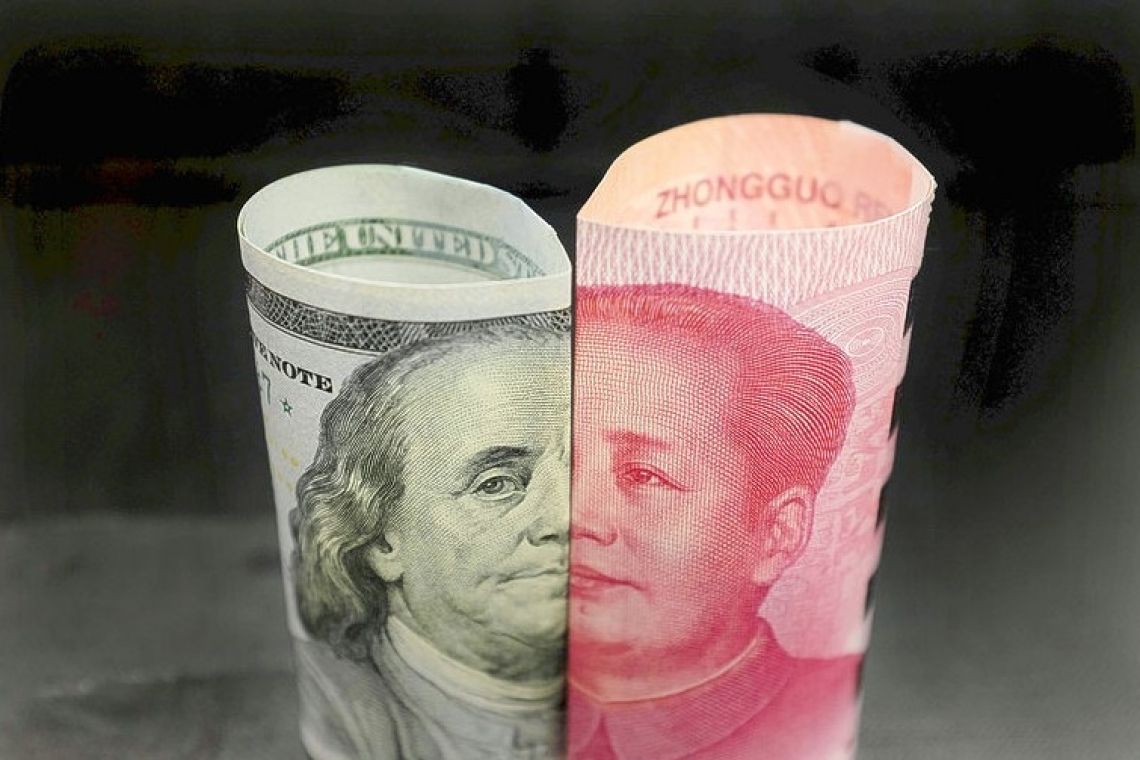WASINGTON--The United States and China have agreed to restart semi-annual talks aimed at resolving economic disputes between the two countries, a process abandoned at the start of the Trump administration as a trade conflict between the countries escalated.
An official familiar with the deliberations said the resumption of the U.S. China Comprehensive Economic Dialogue will be announced on Jan. 15 as part of the signing of a Phase 1 trade deal between the U.S. and China. The restart of the meetings was first reported by the Wall Street Journal.
The regular meetings will provide a forum for steady, high-level conversation between the world's two largest economies separate from the sometimes rocky negotiations over their trade relationship. The sessions will likely be led by U.S. Treasury Secretary Steven Mnuchin and Chinese Vice Premier Liu He.
The two sides have been embroiled in a trade war for well over a year, with the use of import tariffs by both sides upending global supply chains and dealing a blow to business confidence.
The twice-yearly Strategic Economic Dialogue began under former President George W. Bush as a way for the world's two largest economic powers to manage the growing array of issues that arose between them as China's economy and its exports to the U.S. expanded rapidly in the early 2000s.
It was continued under President Barack Obama and initially by President Donald Trump as well. The first round of what the Trump administration renamed the Comprehensive Economic Dialogue was held in July, 2017.
But the regular sessions, sprawling affairs often criticized as heavy on process and light on tangible outcomes, were abandoned as the Trump administration moved towards a more confrontational approach to China that relied on the use of tariffs to pressure the country into economic concessions.
In related news, China's commitments in the Phase 1 trade deal with the United States were not changed during a lengthy translation process and will be released this week as the document is signed in Washington, U.S. Treasury Secretary Steven Mnuchin said on Sunday.
Mnuchin told Fox News Channel that the deal reached on Dec. 13 still calls for China to buy $40 billion to $50 billion worth of U.S. agricultural products annually and a total of $200 billion of U.S. goods over two years. "It wasn't changed in translation. I don't know where that rumor started," Mnuchin said on the "Sunday Morning Futures with Maria Bartiromo" show.
"We have been going through a translation process that I think we said was really a technical issue," Mnuchin said. "And the language will be released this week. So I think it is -- the day of the signing, we will be releasing the English version."
"And people can see. This is a very, very extensive agreement," he added.
White House officials had said as late as Friday that the final Chinese text was not yet completed, even as invitations went out to more than 200 people for a Jan. 15 signing event at the White House.
Asked if he still expected China to purchase $40 billion to $50 billion in U.S. farm products under the deal, Mnuchin said: "I do. Let me just say, it is $200 billion of additional products across the board over the next two years, and, specifically in agriculture, $40 billion to $50 billion."
Thus far, Beijing has not confirmed those purchase commitments, and recent government actions in the agriculture industry have raised questions over the $40 billion to $50 billion target cited repeatedly by Trump administration officials.
Chinese officials have been careful not to publicly discuss details of the Phase 1 deal, because Washington has changed its position multiple times during negotiations, three Chinese officials with knowledge of the situation told Reuters last week.
Signing of the trade deal on Wednesday eases Trump's 18-month trade war aimed at altering China's trade and economic practices, but will leave in place tariffs on about $370 billion worth of Chinese imports per year.
Those are expected to be addressed in Phase 2 negotiations, which the Trump administration wants to launch this year, covering thornier issues untouched by the Phase 1 trade deal, including Beijing's heavy subsidies to Chinese state-owned enterprises and restrictions digital trade and cybersecurity issues.







